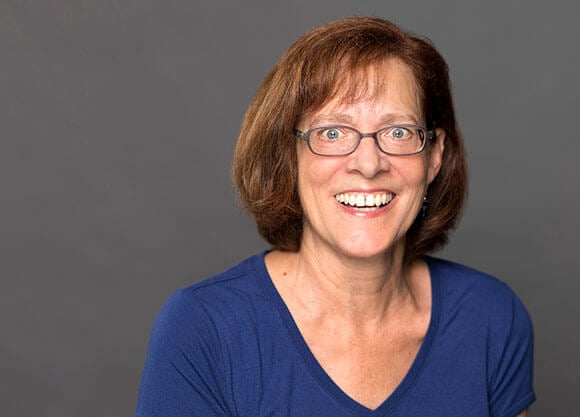
Impossibilities that are suddenly possible
September 08, 2021

September 08, 2021

“Have you seen this?” he asked and turned on the television. I couldn’t understand why he wanted to me to watch a disaster movie at seven o’clock in the morning.
“What is this?”
“It’s happening! It’s happening now! The World Trade Center is under attack!”
What appeared on the television was completely unfathomable, which, I know, is the initial response felt by many. What we were seeing couldn’t be happening. But it was.
I drove to Quinnipiac in a state of disbelief and concern. What was the best way of handling this for the students I would have to teach that day? Was it better to bring it up and discuss it or better to try to carry on with business as usual? Would they all even know what was happening? What could I say to them when so much was still unfolding? What about those who may have parents or family members in the Towers?
Thankfully, none of my students on that day had parents or family members in the Towers. We took a poll and they decided they wanted to carry on as usual, so we did so, which may have given us some of the time we needed to process things as the events continued to unfold. I think the students I taught that day were in complete shock and probably denial, as were most of us. The impossible was happening and we needed to make sense of it somehow.
Fast forward to March 2003, when I was attending an academic conference in New York City. The hotel elevators had the news constantly playing as tension mounted about a possible war. I was riding in one of those elevators when it was announced that a war on Iraq had been declared. Again, it couldn’t possibly be happening. But it was.
I was to give a paper on “’Picturing’ Poetry in the Writing Classroom” at the Conference on College Composition and Communication the following day. I went back up to my hotel room and entirely rewrote the introduction to the paper to reflect the news. The new introduction included the following:
While I was listening to a paper on the use of creative writing in the composition classroom yesterday at about 10:30 a.m. I was struck by a reference made to Lynn Bloom’si assertion that “paradigm shifts occur in response to crisis” (qtd. by Deranger).ii That reference impelled me to think back to that original confluence of crises and to consider them in light of the larger ongoing national crises we have been experiencing since September 11, 2001. It was the series of events that followed that day, and that ultimately led to the crisis we face today, that precipitated my desire to revisit Robert Scholes’ position in Textual Power.iii Scholes argues that
[w]hat students need from us — and this is true of students in our great universities, our small colleges, and our urban and community colleges—what they need from us now is the kind of knowledge and skills that will enable them to make sense of their worlds, to determine their own interests both individual and collective, to see through the manipulations of all sorts of texts in all sorts of media, and to express their own views in some appropriate manner. (15-16)
In revisiting this conference paper and its quick revisions, I would have to say the influence of the events of 9/11 and those events that followed, caused me to rethink what students need from faculty during “paradigm shifts [that] occur in response to crisis.” When such shifts occur we may need to rethink everything we thought we knew was possible or impossible, as many of us have been impelled to do, yet again, in response to the Covid-19 pandemic.
Fast forward to 2017 when a student in one of my classes asked me to be her advisor, which I was happy to do. Overtime, this student told me of her mother’s death in the Towers, and of the subsequent fallout on her family, which continues to the present day. This student, whose name I have changed to Julia to protect her identity, is now a successful professional.
Did I provide Julia with a means of “making sense” of a seemingly senseless world? In our Advanced Creative Nonfiction workshop, Julia would never write about her loss—instead focusing on looking at the complexity and wonder of life, speaking of humanity, and human pain, and human interconnections. To quote Julia, “[L]ife is never symmetrical, but an unspeakable google that carries on wayward with or without us all.”
I think that Julia, thanks to all those who contributed to her education and her life at Quinnipiac and beyond, may have found the time and space to find a good way of “expressing [her] own views in some appropriate manner.” Julia’s experiences and how she handled them have certainly influenced me.
i. Bloom, Lynn Z. “Finding a Family, Finding a Voice: A Writing Teacher Teaches Writing Teachers.” Journal of Basic Writing, vol. 9, no. 2, 1990, pp. 3–14. Dr. Bloom was also attending the Conference on College Composition and Communication in 2003. Special thanks to Lynn and Martin Bloom for their intelligence, kindness, creativity, conversation, lunches, baked-goods, generosity, support, and unfailing positive influence.
ii. Deranger, Brant. “Re-Writing What English Composition Has B-Come.” Conference on College Composition and Communication. New York, NY 2003. Bloom was herself paraphrasing Thomas Kuhn’s work in The Structure of Scientific Revolutions (1962).
iii. Scholes, Robert. Textual Power. New Haven: Yale UP, 1985.
Quinnipiac Today is your source for what's happening throughout #BobcatNation. Sign up for our weekly email newsletter to be among the first to know about news, events and members of our Bobcat family who are making a positive difference in our world.
Sign Up Now